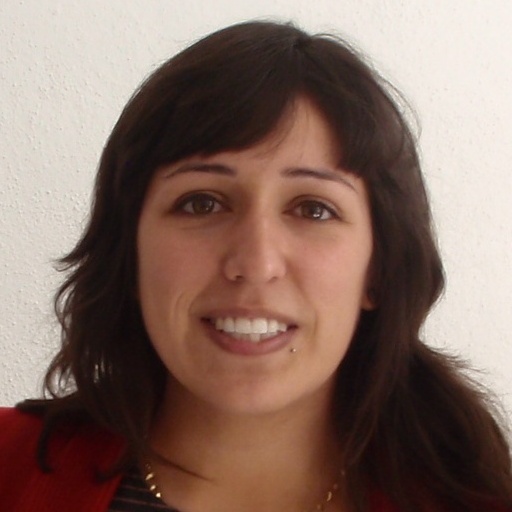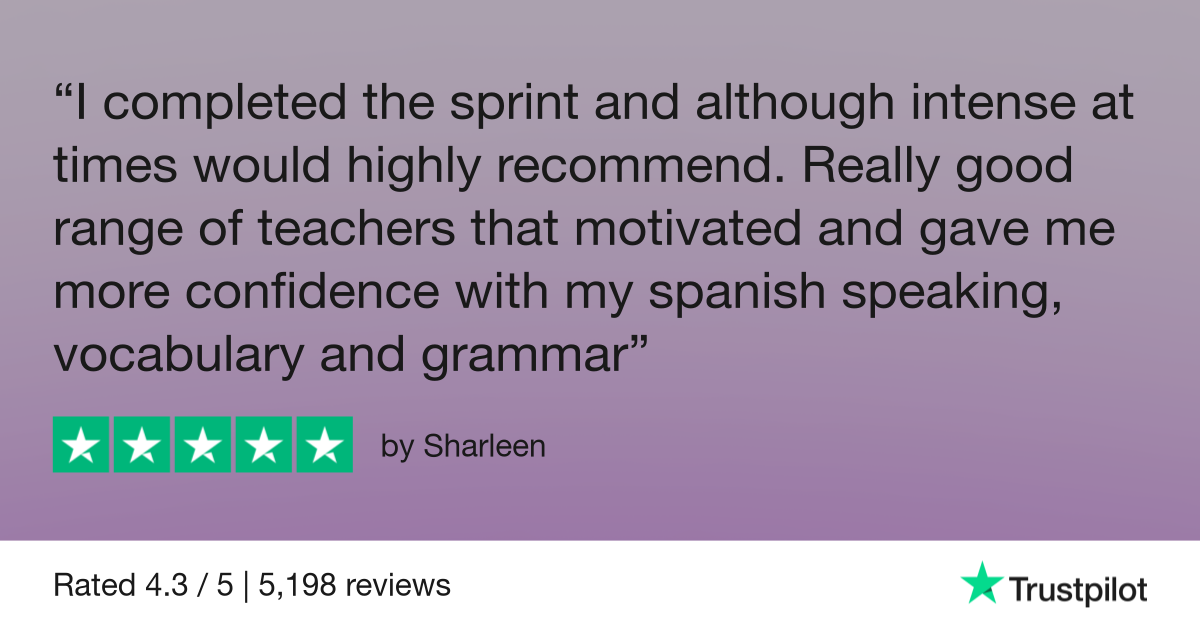How to talk on the phone in Spanish like a pro

What is it about the phone that can be scary for a language learner? For one, it means talking without body language. Plus, watching someone’s lips, whether we realize it or not, does help us hear the pronunciation of words and letters clearly. Without physical clues, trying to talk on the phone in Spanish can literally be more difficult than a face-to-face conversation. Not to worry. Today we have everything you need to feel like a pro on your next phone call. We’ll cover how to answer the phone in Spanish, common Spanish phone phrases, phone-related verbs and tips for getting past those phone call nerves.
- How to answer the phone in Spanish
- How to introduce yourself on a call
- Key Spanish phrases for phone conversations
- What do Spanish people say when picking up the phone?
- What is the verb to call on the phone in Spanish?
How to answer the phone in Spanish
To talk on the phone in Spanish, you need to start by picking up when someone calls. In English, we answer by asking, “Hello?” Should we just find out how to say hello in Spanish and use that word? No, it’s not that simple. It is not typical in a Spanish-speaking country to answer the phone using the word hola (hello).
Knowing how to answer the phone in Spanish is one of those cases where a direct translation doesn’t work. People answer the phone differently in different countries. Here are three common Spanish phone greetings:
- "¿Diga?" / "Dígame?" (Spain)
- "Bueno?" (Mexico)
- "Aló?" (Latin America)
These three greetings have you covered for informal calls. To talk on the phone in Spanish in a more formal setting, you should become familiar with a few more phrases. Here are more formal sentences you may hear in real-life customer service situations:
- “¿En que le puedo ayudar?” (How may I help you?)
- “¿Con quién tengo el gusto?” (Whom do I have the pleasure of speaking with?)
- “¿Y usted cómo se llama?” (And what is your name sir/ma’am?)
Taking a live class with Lingoda is a smart way to practice vocabulary like this. You can do dialogues with your native-level teacher and get life feedback on your audio comprehension. With Lingoda, you start speaking in Spanish on your first day of class. You’ll be ready for intermediate conversations like phone calls much faster than with writing- or reading-based learning methods.

Learn Spanish with Lingoda
How it works

How to introduce yourself on a call
To talk on the phone in Spanish without getting nervous, we recommend practicing basic phone conversations.
Begin by saying who you are. This is useful for both social introductions and professional phone meetings:
- "Hola, soy [Sara]." (Hi, I’m [Sara].)
- "Me llamo [Montserrat]." (My name is [Montserrat].)
Check out our info on Spanish vocab for the office to keep that conversation rolling. And after you’ve introduced yourself? Let’s say you hear someone answer but aren’t sure who you are speaking with. Here are common ways to identify a caller in polite Spanish:
- "¿Con quién hablo?" (Who am I talking to?)
- "¿De parte de quién?" (Who’s calling/asking?)
Testing sample phone conversations (yes, even one-sided practice chats by yourself) can help introduce yourself with ease.
Key Spanish phrases for phone conversations
When you talk on the phone in Spanish, you’ll need to learn some key Spanish phrases that are specific to phone conversations. These Spanish “phone phrases” are things that we say specifically on voice calls. Some are phrases that aren’t typically used in general conversation.
Asking for someone on the phone
- "¿Puedo hablar con [Nancy]?" (Can I speak with [Nancy]?)
- "¿Está [Blanca] disponible?" (Is [Blanca] available?)
- "Buenas tardes, con [Francisco] por favor." (Good afternoon, get me [Francisco] please.)
Clarifying and understanding
- "¿Puede repetirlo, por favor?" (Can you repeat that, please?)
- "Lo siento, no entendí bien." (Sorry, I didn’t understand well.)
- "¿Puede hablar más despacio?" (Can you speak more slowly?)
Making an appointment or reservation
- "Quiero hacer una cita para..." (I want to make an appointment for...)
- "¿Cuándo tienen disponibilidad?" (When do you have availability?)
- "¿Podría confirmarme la fecha y la hora?" (Could you confirm the date and time for me?)
- "Llegaré unos minutos tarde." (I will arrive a few minutes late.)
- "¿Cómo puedo cancelar o reprogramar la cita?" (How can I cancel or reschedule the appointment?)
Handling a customer service call
- "Tengo un problema con..." (I have an issue with...)
- "Me gustaría hablar con un representante." (I would like to speak with a representative.)
- "¿Cuál es el procedimiento para...?" (What is the procedure for...?)
- "Tengo un comentario sobre el servicio. ¿Puedo hablar con un/a supervisor/a?" (I have a comment to share about the service. Can I speak with a supervisor?)
- "Gracias por su ayuda. ¿Me podría enviar un correo con la información?" (Thank you for your help. Could you send me an email with the information?)
Emergency calls and asking for help
- "Necesito ayuda urgente." (I need urgent help.)
- "Por favor, llame a una ambulancia." (Please call an ambulance.)
- "Hubo un accidente en..." (There was an accident at...)
- "Mi teléfono se está quedando sin batería. ¿Puedo llamarle más tarde?" (My phone is running out of battery. Can I call you later?)
- "Estoy perdido/a. ¿Me puede ayudar?" (I’m lost. Can you help me?)
For this final phrase, and anytime you use an adjective to describe yourself, be sure to follow the rules for gender in Spanish.
Ending the call politely
- "Gracias por su tiempo." (Thank you for your time.)
- "Nos hablamos pronto." (We’ll talk soon.)
Overcoming challenges in Spanish phone calls
Even if you know a few Spanish phone phrases and how to answer the phone in Spanish, there is always that moment right after introductions. You have to keep the conversation moving, but how? Here are our tips for getting past awkward silences.
1. Repeat what you heard to confirm understanding
- “En serio, ¿[se mudó a California]?” (Seriously, [she/he moved to California]?
- “No me diga…[ya se graduó].” (You don’t say…she/he already graduated.)
2. Ask for repetition and clarification
- “A ver, ¿qué dijo sobre [subject]?” (Let’s see, what did you say about [subject]?
- “No me diga, pero ¿de [cuál hija] habla?.” (You don’t say, but [which daughter] are you talking about?)
3. What to say when the line is bad
- “¿Sí me escucha?” (Can you hear me?)
- “¿Ahora sí o no?” (Now can you or not?)
4. Practicing with TV shows, podcasts, or Zoom calls
To get ready to talk on the phone in Spanish, start by reviewing our article on small talk in Spanish. Then, listen to native speakers on telenovelas in Spanish or Spanish podcasts. Remember to pay special attention to phone conversations.
What do Spanish people say when picking up the phone?
We’ve mentioned before that some words are different in different Spanish-speaking countries . This is definitely true when it comes to phone greetings in Spanish. Here are a few greetings below that are culturally specific. They may sound normal in one country but impolite in another.
| Phone greeting | Country | English meaning | Notes |
| ¿Bueno?Bueno. | Mexico | All good?Good. | Can be said as a question or as a statement. |
| ¿Aló? | Chile, much of South America | hiya | An alternate form of hola (hello). |
| ¿Diga?¿Dígame?Dígame. | Spain | Talk?Talk to me?Talk to me. | All three forms are common. |
| ¿Sí? | Spain | Yes? | Latin Americans might feel that this sounds impatient. |
| Hola. | various | Hello. | Common among friends, but not as a formal greeting. |
What is the verb to call on the phone in Spanish?
Here are the most common verbs used to talk on the phone in Spanish or describe these kinds of activities.
| Spanish verb | English meaning | For example |
| Llamar | to call | Quiero saber el horario. ¿Podemos llamar?(I want to know the schedule. Can we call?) |
| Echarse una llamada | to give someone a call | ¿Quieres invitarle a Veronica? Échale una llamadita.(Want to invite Vero? Give her a call.) |
| Hablar | to talk | Hablame de ti.(Talk to me about yourself.) |
| Contar | to tell | Cuéntame todo el chisme. (Tell me all the gossip.) |
Ready to talk on the phone in Spanish yet?
With everything you learned today, you are ready to talk on the phone in Spanish the next chance you get. Whether the caller is from Mexico (¿Bueno?) or from Chile (¿Aló?) you’ll have the right greeting to answer. Want to try out different greetings? With Lingoda’s native-level Spanish teachers you can take classes with instructors from all over the world: Spain, Argentina, Mexico and more. Try out your phrases for Spanish phone conversations in your next class. Soon you’ll be an old pro, chatting away on the phone and getting all the chisme (gossip) from your friends.

Learn Spanish with Lingoda
How it works

















